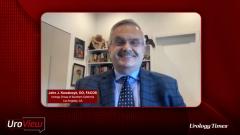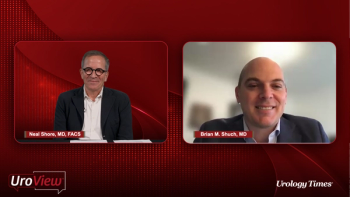
Identifying and Overcoming Challenges Associated with Implementing Software Tools
Practice management concerns and considerations for clinicians intending to incorporate software tools into their practice workflows.
Episodes in this series

John J. Kowalczyk, DO, FACOS: The conversations and other activities that we engaged in terms of making changes with our EMR [electronic medical record] systems evolved around the clinical side. A lot of the products that are out there would be great for administration or be fantastic for the front office. We finally found something that was acceptable and easy to use for both back office management and front office management. The actual day we decided to take on the challenge of Modernizing Medicine [ModMed], it was initially a big no from my management team. The manager in my office basically has full control of the purse. If I had control, we would lose control. The manager basically said, “No. That's it. You’ve spent way too much money on changing the EMRs 3 times in the past. We can't afford to do it again.”
The Modernizing Medicine representative came into the office with his iPad at lunch that day and walked around with 1 of the medical students. We have third- and fourth-year medical students that rotate with us. We had a third-year medical student who was a fantastic typist. He just types away. The student was actually functioning as more of a scribe for me when we got to the actual clinical component because of, again, certain built-in templates or other components of the software itself. We had just seen a patient and he was able to create and finish a note, while we basically emulated the exact same component on our EMR that we had at the time versus their EMR. The student was done with his note in less than 3 minutes. We actually timed it. Whereas, for the other note that we were still working on, we went way past the 5-minute mark in terms of the details that were required to fill in the blanks, etc. This revolution actually brought a few tears to my eyes. I went running into the manager's office, and I said, “This is going to save us money. I know it will.” As it turns out, that is the main reason we have stayed with the Modernizing Medicine component. I'm not trying to sound like a salesperson, but every time a question has risen as to a certain item that might be bothering us, we've actually had representatives come out. One of the things I just learned how to do is to create my own electronic request for a laboratory. Before our interview today, we had a patient that sent me an email asking if they could go to the lab for their PSA [prostate-specific antigen] level before they come in. I was able to just click 4 buttons and then submit the request to the laboratory. It's waiting for the patient to show up at any Quest Laboratory in his region and get his PSA level. Hopefully, the results will be ready for him by the time he comes to see me in 2 weeks.
How tech-savvy are my patients? I laugh because this is a never-ending problem in our patient population. They are not very savvy at all. Most of my patients are elderly. At least 30% of our patients are non-English speaking. This creates a barrier to using technology. We've come across a significant challenge as to how to get these people into our portal. Even trying to do telemedicine during the pandemic was challenging with some of these patients. Our strategy was to find a relative that spoke English and was a little younger so they were able to help work with them, at least to do the telemedicine visits. However, to answer the question of how tech-savvy my patients are, a third of them are not tech-savvy at all. It’s quite challenging. That creates a huge barrier for our communication and interaction with them.
Newsletter
Stay current with the latest urology news and practice-changing insights — sign up now for the essential updates every urologist needs.



